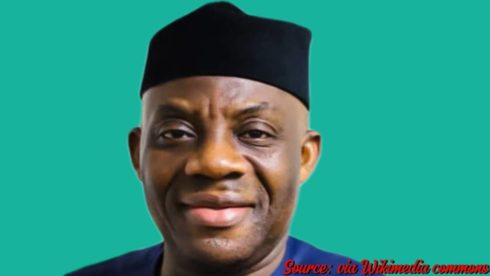Nigeria’s newly appointed Minister of Education, Dr. Tunji Alausa, has eliminated the 18-year age requirement for admission into higher education institutions nationwide. This landmark decision is anticipated to provide increased educational opportunities for younger students who meet the academic criteria but were previously hindered by age restrictions.
The minister’s reform is part of a broader initiative to foster a more inclusive education system that promotes merit and accessibility. Tunji Alausa stated that the change aligns with international standards, where age requirements are often relaxed in favor of intellectual readiness and academic performance, thereby encouraging capable young minds to advance without artificial age constraints.
Crackdown on Fake Degree Certificates from Neighboring Countries
Dr. Tunji Alausa also reiterated the federal government’s stance against degree certificates obtained from unaccredited institutions in neighboring West African countries, specifically Togo and Benin Republic. Over 22,700 degrees from these institutions have been declared null and void as part of a crackdown on “fake” universities that lack proper accreditation and quality standards.
The decision to invalidate these degrees stems from concerns over the integrity of Nigeria’s workforce and the need to maintain high standards in its education system. Dr. Alausa noted that while students may seek education outside Nigeria, it must be from reputable, accredited institutions to ensure the value and quality of qualifications held by Nigerian graduates.
First Ministerial Press Conference Outlines Key Priorities
During his first press conference held in Abuja on Tuesday, Dr. Tunji Alausa highlighted key areas of focus for his term, including a commitment to improving the quality of education at all levels. This initial media engagement provided insight into his vision for the Nigerian education system, signaling significant changes to policies that may affect millions of students and educators across the country.
The minister underscored the need for systemic reforms to address long-standing issues such as outdated curricula, inadequate facilities, and limited access to resources. He expressed optimism that these changes would pave the way for a modernized educational structure that better serves Nigeria’s growing population.
Emphasis on Quality Assurance and Accreditation Standards
In his address, Dr. Tunji Alausa emphasized the importance of quality assurance and accreditation as foundational pillars of a reputable education system. He committed to implementing stringent monitoring and evaluation mechanisms to ensure that universities and other institutions meet rigorous academic and operational standards.
By upholding strict accreditation guidelines, the Ministry of Education seeks to safeguard Nigeria’s educational reputation both domestically and internationally. Dr. Tunji Alausa highlighted that reputable institutions are crucial not only for providing high-quality education but also for fostering trust and confidence in the Nigerian education system on a global scale.
Impact on Prospective Students and Nigerian Society
The removal of the age requirement is expected to have a profound impact on prospective students, many of whom were previously restricted from pursuing higher education due to age limits. By focusing on intellectual merit rather than age, Nigeria aims to cultivate a diverse range of talents and competencies, ultimately enriching the workforce with well-prepared graduates.
Parents and students alike have welcomed the decision, noting that it creates a more equitable educational landscape. Additionally, Dr. Tunji Alausa’s firm stance on invalidating foreign-acquired fake degrees reinforces the value of legitimate education, encouraging students to pursue recognized qualifications that hold true value in Nigeria’s competitive job market.
Prospects for Nigeria’s Education System Under Dr. Tunji Alausa’s Leadership
Dr. Tunji Alausa’s recent reforms mark the beginning of what many anticipate to be a transformative era for Nigeria’s education system. His clear stance on quality control, accreditation, and accessibility has already sparked conversations among education stakeholders and policymakers about the potential for sustainable improvements across the sector.
As Dr. Tunji Alausa begins his term, the Nigerian education system stands poised for a shift that could redefine its structure and influence future generations. With comprehensive reforms aimed at fostering merit, credibility, and accessibility, his leadership may pave the way for Nigeria to rise as a leader in education within the African continent.
Table of Contents
Discover more from OGM News NG
Subscribe to get the latest posts sent to your email.














